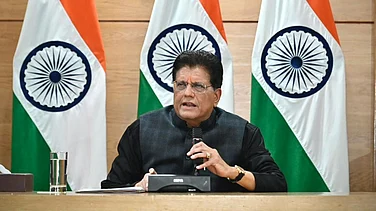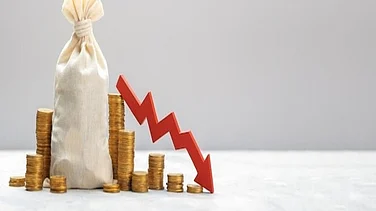Economists at the country's largest lender SBI on Monday dismissed the 'K-shaped recovery' critique, saying the pandemic was a 'leveler' which helped in reducing inequalities.
They said government transfers to the poor alone are adding up to Rs 75,000 per household per annum.
It can be noted that in the months following the outbreak of the COVID-19 pandemic, concerns were being raised about deepening inequalities in India, with some calling it as a 'K-shaped' recovery, where rich emerged richer while the poor slipped down further.
After analysing data and studies, the SBI economists said, "… in hindsight, the pandemic may have been a leveller in terms of inequality with the poor getting protected through measures such as food transfers."
It said India has delivered a sharp recovery after the pandemic and acknowledged that critics are still quoting it as a K-shaped recovery for India.
"… It is true that the strong rise in financial assets resulted in an increase in inequality in 2021. However, when correlated with short-run asset price movements, such fluctuations in inequality always prove transient," the report explained.
"… In the Indian context, it is an incorrect conjecture to assume that inequality has worsened during the pandemic," it added, citing its study on how cereal procurement has helped reduce inequality.
The report said a higher procurement is benefitting the poorest of the poor in terms of subsequent free distribution of foodgrains, and also helping put money in the hands of smaller and marginal farmers, with distributional impact.
"With a progressive growth in output across states as proxied by GSDP, it is clear that the fruits of such a growth have clearly reverberated and dovetailed into an inclusive growth.
"India has thus done quite well during pandemic in terms of navigating income shocks across deciles of population," the study said.

No K-Shaped Recovery In India, Pandemic A "Leveler" To Reduce Inequality
No K-Shaped Recovery In India, Pandemic A "Leveler" To Reduce Inequality
Published At:
- Previous Story
 India–US Trade Deal to Be Formalised by Mid-March; Joint Statement Within Days: Piyush Goyal
India–US Trade Deal to Be Formalised by Mid-March; Joint Statement Within Days: Piyush Goyal - Next Story
MOST POPULAR
WATCH
MORE FROM THE AUTHOR
×


















.jpg?w=200&auto=format%2Ccompress&fit=max)




